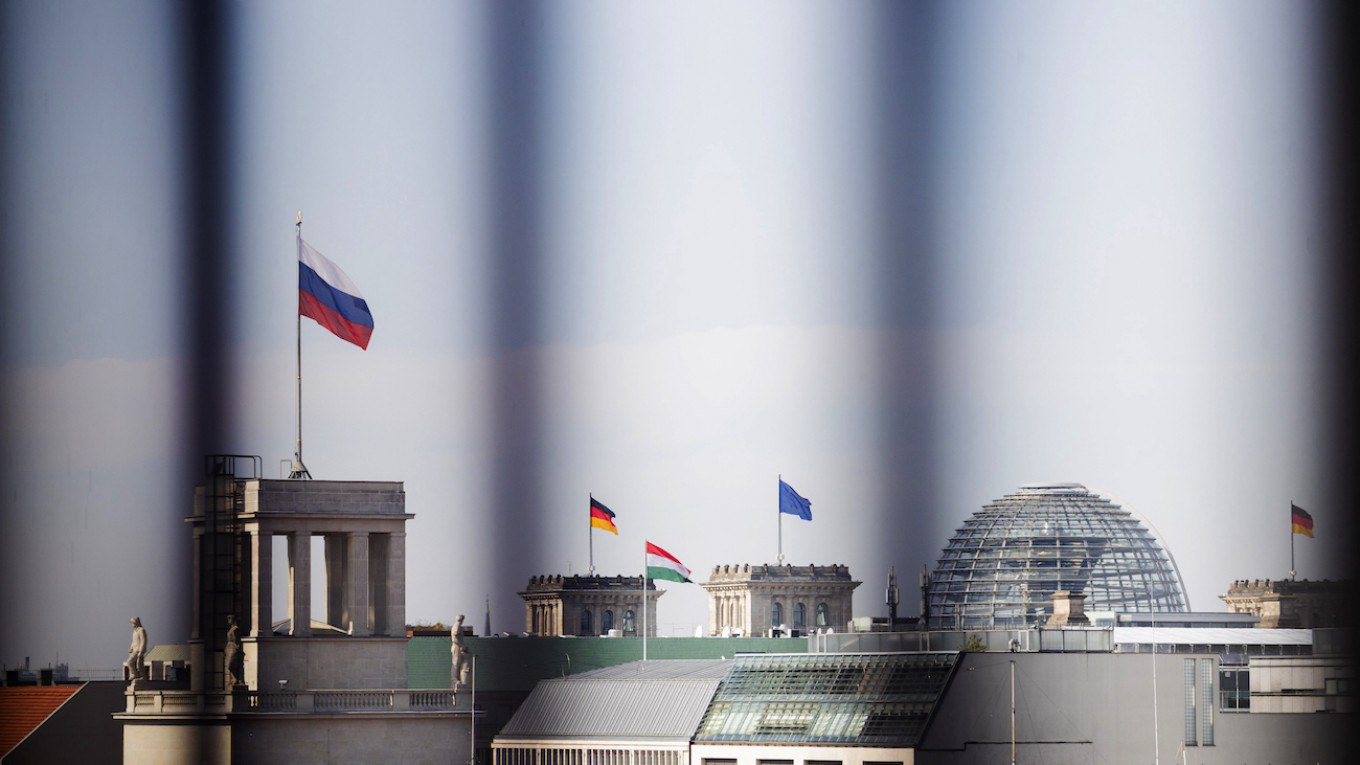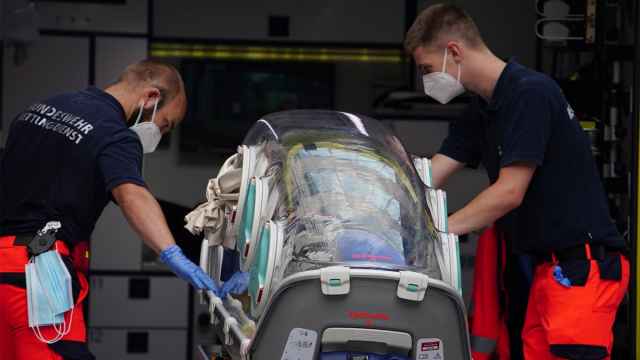Germany has transmitted to Russia transcripts of interviews with Alexei Navalny as part of its response to Moscow's request for assistance in its investigation into the poisoning of the Kremlin critic, Berlin said Saturday.
Navalny was evacuated to Berlin in late August for treatment after he fell violently ill on a flight from Siberia to Moscow.
Tests carried out by Western countries including Germany have concluded that he was poisoned by the Soviet-era nerve agent Novichok.
He has said he will return to Russia on Sunday, flying with Pobeda — Aeroflot's low-cost subsidiary whose name means "Victory" in Russian.
Germany's justice ministry said it "responded yesterday to the four requests for legal assistance from the prosecution office of Russia in connection to the murder attempt on Alexei Navalny in Russia."
Police investigators had questioned Navalny, who "provided extensive answers to questions sent through by the Russian prosecutor," said a spokesman for the German justice ministry.
The transcripts were transmitted to Moscow, he added.
"The government assumes that the Russian government will now take all necessary steps to clear up this crime against Mr Navalny," said the spokesman.
"All the information necessary in criminal investigations like blood and tissue samples, clothing pieces, are in, are available in Russia," he said.
Navalny has accused Russia's main security agency, the Federal Security Service (FSB), of poisoning him on the orders of President Vladimir Putin.
Russian authorities have repeatedly denied any involvement and refused to investigate the case.
A Message from The Moscow Times:
Dear readers,
We are facing unprecedented challenges. Russia's Prosecutor General's Office has designated The Moscow Times as an "undesirable" organization, criminalizing our work and putting our staff at risk of prosecution. This follows our earlier unjust labeling as a "foreign agent."
These actions are direct attempts to silence independent journalism in Russia. The authorities claim our work "discredits the decisions of the Russian leadership." We see things differently: we strive to provide accurate, unbiased reporting on Russia.
We, the journalists of The Moscow Times, refuse to be silenced. But to continue our work, we need your help.
Your support, no matter how small, makes a world of difference. If you can, please support us monthly starting from just $2. It's quick to set up, and every contribution makes a significant impact.
By supporting The Moscow Times, you're defending open, independent journalism in the face of repression. Thank you for standing with us.
Remind me later.






